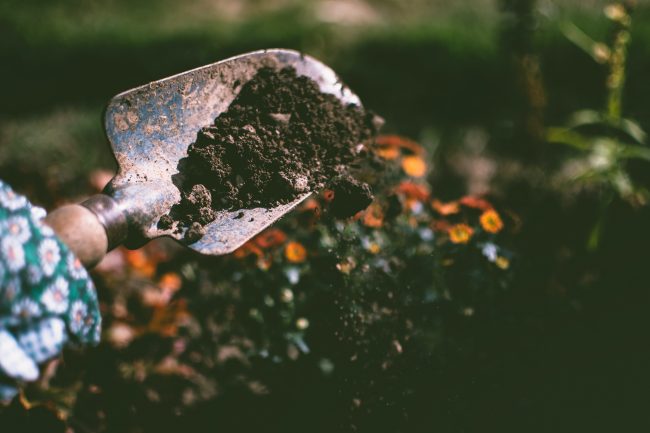Don’t you remember all the hard work you put in your garden to set it up? I’m sure you do. That was no easy job, but the job isn’t over. Yet you need to put that much effort to maintain your garden. Otherwise, all your hard work can go in vain.
A healthy garden requires continuous maintenance to stay healthy. Most of plants require enough water, sunlight, and nutrients to grow and produce. Well, you need to water, your garden, make sure plants are getting enough, sunlight, and take weeds out to make sure they are not sharing the nutrients from the soil that only your plants deserve.
Now. These are not too easy jobs honestly, but trust me once you negate your garden and it gets sick. It’ll take far more effort for you to get it back in good health. You don’t want to do that. Do you? If you don’t, then, let’s go ahead to know what regular care you need to take of your garden and how the water supply to garden the basic vegetable plants and fruits are 75 to 95 water.
Basic Needs: Nutrients and Water
The growth of your plant succulents, the productivity of it, is directly related to the availability of sufficient water emphasize more on watering during the initial stage of plant development and immediately after transplanting that’s when it’s most necessary, you don’t want shallow rooting of your plants, making it more vulnerable to drought damage so avoid shallow frequent watering.
You can use almost any organic matter, such as wood chips, hay dry leaves sawdust bark, etc. The layer can be 2 to 2.5 inches thick, make sure the thickness is even all over the garden. The best time to mulch in spring wait until the soil is at 65 f in the top four inches.
Then mulch, you may use plastic mulch in the warm season. Vegetable beds, take weed out, weeds, are harmful, and need to be taken out. Weeds are those plants out of place that grow well in disturbed environments.
They are nutrient hungry and compete with your garden plants for limited nutrients and water. You have in the soil they also harbor insect and disease pests. One major key to successful gardening is weed control.
Fertilizing Your Plants
Take action against them as early as possible. You keep bare soil exposed and they will germinate and fill that apply correct fertilizers. When you start planting in the garden, we believe that you prepare the soil properly, ensuring the right amount of nutrients, but over time garden, soils lose fertility resulting in inadequate nutrients for plants.
As soon as you see, the signs of low soil fertility in your garden apply proper fertilizers immediately to give a boost to your plants. Measuring and implementing the right amount of fertilizer in plants is required as too much fertilizer can burn the roots.
On top of that, over-fertilizing may reduce the capacity to absorb water, which can lead the plants more inclined to stress from cold and heat. However, the best fertilizers for the plant, especially for flowers, can be water-soluble or liquid ones.
When you buy compost from the market, make sure that you choose the best one that provides the required sunlight. Sunlight has important effects on plants as they get food and energy from it. The photosynthesis process, photosynthesis helps plants to obtain power through the chlorophyll in their leaves, which then it converts into food infect without proper access to sunlight plants, leaves become yellow, thin, and weak.
You need to ensure that your plants are getting the required sunlight, understand your plants, some plants, and flowers, need sunlight for a long time every day, while some indoor plants need only a few hours to prevent and control pests.
Removing Certain Pests
Every gardener likes it. You want to see the garden bursting with flowers, fruits, and vegetables, but unwelcome garden. Pests can be significant impediments to making it happen. Pests can easily kill delicate plants, therefore preventing the pests from attacking your garden, though no garden is genuinely free of pests.
However, making your garden weeds free to stop growing insects, while installing barriers and traps can be another tricky part to prevent the pests as well, even after that, taking all measures to prevent pests if they attack or plant.
Incidentally, you should go with appropriate pesticides to kill them to prevent the further spreading of pests and eradicate the profoundly affected plants. But one thing you need to keep in mind is that all pests are not harmful to the plants.
Some insects, like spiders, ground, beetles, etc are beneficial to the garden as they fight to kill other destructive pests, take care of these types of goods, pests to make a residence for them by planting pollen and nectar, producing plants prevent and control diseases.
Your fight has not been done yet with the end of pest control. You need to give another battle against the disease caused by fungi bacteria and viruses. It can be heartbreaking if you see that your plants are dying from these fungal infections, like anthracnose bacterial leaf spots and white, rust, etc.
To make your garden safe from fungal infections, avoid excessive watering and when water work is done, clear, the pot vases, which may help to spread germs, and further use clean tools for weeding and pruning to avoid bacterial and viral diseases.
However, no matter how caring are you to your garden, unfortunately, you may notice that your plants get infected with a disease. In that case, you need to use appropriate chemicals to get rid of the bugs using chemicals is considered a reason for the killing of beneficial organisms.
As well, it is widely advised to follow the organic method which is friendly to your plants, insects, and birds around you. This process does not allow killing all insects. Instead, this process saves helpful insects for the garden prune.
Plant Maintenance
Your plant pruning is the process of cutting back the overgrown branches to control. The growth of plants is an excellent way of taking care of your plant’s prune. The wounded limbs that can be infected over the winter as injured legs may allow diseases established pruning, preventing infections from spreading to the new height.
It is better to do the trimming job before late winter, as the storm of late winter can cause more massive damage. If branches are not trimmed properly, on the other hand, you may notice that some of your plants are growing waywardly.
In that case, by pruning you can cut back the branches to achieve uniform heights and compact shapes. You need to make sure to use sharp tools to make a clean cut, use clean tools. Unclean tools can be responsible for spreading diseases in the garden.
It is vital to ensure that the wedding and pruning tools are clean and germs, free so make your devices clean and disinfect before use. With the help of good disinfectants, like chlorine, bleach trisodium phosphates.




